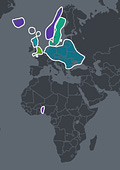When I was a child, I remember my mother bragging that we had “Indian blood.”
She based her assertion on nothing more substantial than an old family photo of a woman who had high cheekbones. Her maternal family tree had been professionally researched; it went back to 1742 when Nathaniel Wetherell arrived in New York from the other York—in England. He wa…

